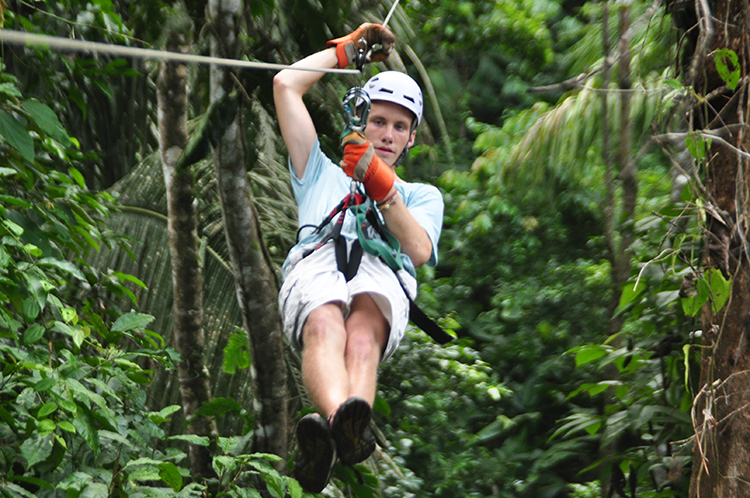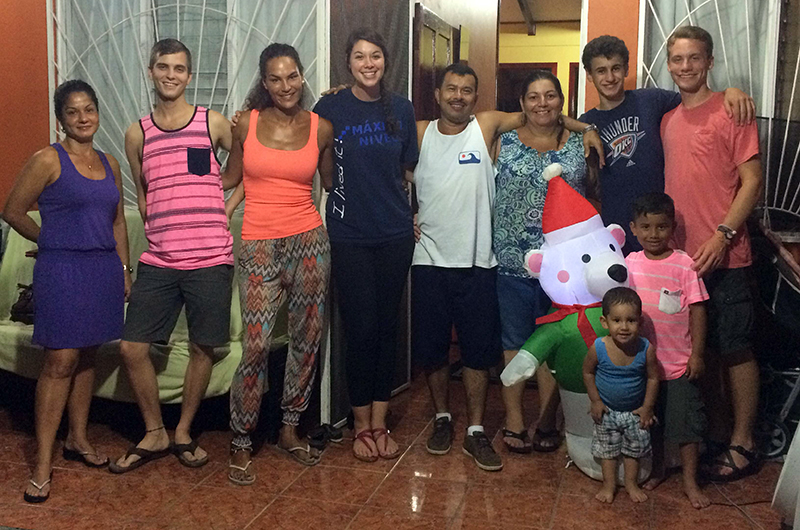Over the past two weeks, I’ve had the opportunity to learn Spanish in an immersive teen summer language camp in Costa Rica. During my time here, I have improved my language skills greatly and learned a lot about the best ways to learn a new or previously studied language. I have also had a lot of fun doing so, and I’ll include some photos of my favorite activities so you can partake in my trip!
Before I dive into what I’ve learned, I’ll give you a briefing on the Spanish background I had before going into my time in Costa Rica. In the States, I have taken 4 years of classes at my school, and during those years I had accumulated a lot of knowledge. I could write a decent paper, get a good grade on a test, and carry a somewhat staged conversion.
My speaking ability going into these two weeks was minimal, and I lacked a lot of crucial vocab to carry a conversation. That was my Spanish foundation going into this program, but my first piece of advice is to not let your current language background prevent you from stepping out and further learning a language. We all start somewhere, and now is always the best time to further your language skills.

Me “jumping” right in to a new culture and language while on a zip-lining excursion in Costa Rica.
With that, I have three pieces of advice to improving your language skills:
Immerse Yourself in the Language
The best way to learn a language is to surround yourself with an atmosphere of which promotes learning your language. The most natural way to do this is to go abroad and surround yourself with another culture and people that forces you to use the language you’re trying to learn in daily communication.
I have found that my time in Costa Rica has rapidly improved my speaking abilities, much faster and easier than four years of Spanish classes did. These classes provided me with crucial knowledge of how to conjugate verbs, form sentences, and a plethora of other knowledge that had helped me greatly, but immersing myself with a culture of learning and Spanish helped me turn that knowledge into experience.
It helped me to turn what I knew about the language into something I could use to communicate with people I would never had been able to talk to before and to partake in a different culture. The process was also a lot more natural than learning a language in a classroom in the United States, as it wasn’t done out of a desire simply to learn, but to communicate. That’s why my time in Costa Rica has improved my language abilities so drastically, as I was able to put into practice in a practical sense what I had learned in school.

Don’t Be a Thought Translator!
When I first arrived in Costa Rica, the woman who runs the transportation service for my program told me that a piece of advice that helped her learn English was to create a box in her mind and keep everything regarding English there. That way, when she needed to speak English she could pull whatever she needed from that box. This is a very practical way to help you begin to think in the language you’re trying to learn.
Thinking in the language you’re trying to learn is an important skill because it takes a lot less time to communicate, this is particularly beneficial in verbal communication, and because it will allow for a more natural expression of ideas. This is because instead of thinking in your current language and then translating your idea to another language, which will probably be different in form and structure, you can simply express your raw thoughts in your new language.

Poco a Poco
Poco a poco is a saying in Costa Rica that I have heard many times in the two weeks I have been here. It means little by little, and it is a saying commonly used when people are learning something new, especially a language. This is because learning something as complicated and complex as a language is going to take time, and you’ll learn it little by little, bit by bit. Just have some patience, and you’ll find that you’ll slowly begin to understand and speak more and more. Patience and time are the essential ingredients for learning anything new, and learning a language is no exception.
I hope that these tips are of some help for you in your adventurous task of learning a new language, and I wish you the best of luck!
Speaking of adventures, it’s not just about learning a language but getting to experience new things while traveling. Like me petting a baby crocodile.

Owen Arnall is 17 years old and lives in Springfield, Missouri. His goal during his language program in San Jose, Costa Rica is to “embrace the pura vida of life so that I can be completely submerged into the culture and build meaningful relationships with the Ticos!” Follow Owen’s adventure in Costa Rica on his weekly blog post updates.

Leave a Reply